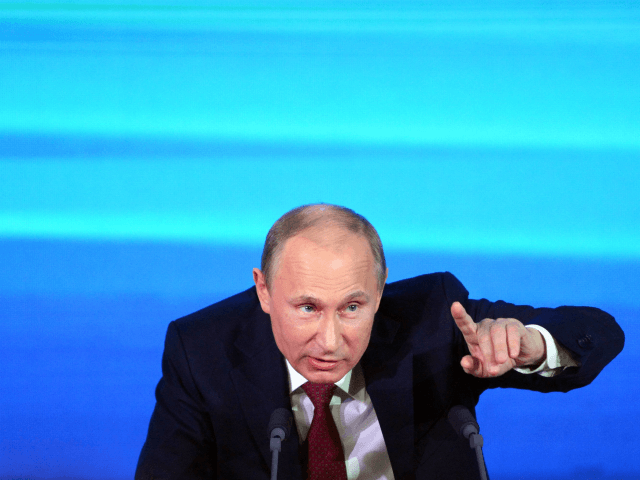Russian President Vladimir Putin on Friday revealed he had ordered the Kremlin “to prepare a reciprocal response” to the recent U.S. test of a land-based nuclear missile.
Putin said the test is a testament to U.S. President Donald Trump’s intentions to deploy missiles across the world banned by the Intermediate-Range Nuclear Forces Treaty (INF), Reuters reports.
The Russian authoritative leader further declared:
We have never wanted, do not want and will not be drawn into a costly, economically destructive arms race. That said, in the light of unfolding circumstances, I’m ordering the Defense Ministry, the Foreign Ministry and other appropriate agencies to analyze the threat to our country posed by U.S. actions, and to take exhaustive measures to prepare a reciprocal response.
Marking the first weapons test since the U.S. withdrew from the INF on August 2, the Pentagon announced Monday it test-fired a ground-launched nuclear-capable Tomahawk with a range of more than 310 miles.
The Cold War-era treaty prohibited land-based missiles with a range of 310-3,400 miles, hindering the ability of Russia and the United States to launch a nuclear strike at short notice.
Russia and China blasted the test, accusing the United States of stoking “new arms race” and “escalating military tensions” with the missile test.
Recent military modernization activities and suspected missile tests in Russia and China, however, indicate that an arms race is likely already underway.
On Friday, Putin told his Security Council that Moscow could not allow the United States to deploy new missiles to the Asia-Pacific region.
He noted that such a move would impact the Kremlin’s “core interests as it is close to Russia’s borders,” Reuters reports.
On August 2, U.S. Defense Secretary Mark Esper said he is in favor of placing ground-launched intermediate-range missiles in Asia “sooner rather later.”
The Pentagon chief’s comments triggered complaints from Putin.
Putin argued that the United States has set up the conditions to deploy its new land-based missile in Romania and Poland.
“All this leaves no doubts that the real intention of the United States [in withdrawing from the INF] was to … untie its hands to deploy previously banned missiles in different regions of the world,” the Russian president added Friday.
U.S. officials, however, have said American has no plans to send new land-based missiles to Europe.
On Monday, the Pentagon announced that it “conducted a flight test of a conventionally-configured ground-launched cruise missile” on Sunday, adding:
The test missile exited its ground mobile launcher and accurately impacted its target after more than 500 kilometers [about 310 miles] of flight. Data collected and lessons learned from this test will inform the Department of Defense’s development of future intermediate-range capabilities.
The Trump administration pulled out of the INF treaty after accusing Russia of violating it. Both sides have repeatedly accused one another of breaching the landmark agreement — signed by U.S. President Ronald Reagan and Soviet leader Mikhail Gorbachev in 1987.
U.S. officials had also condemned the INF’s failure to cover new missile technology developed by China, Iran, and North Korea.
U.S. military officials have cautioned that intensified military modernization efforts by China and to a lesser extent Russia are eroding America’s military advantage. American military and intelligence officials have also warned that China and Russia are growing closer.
In October 2017, Putin warned the United States not to withdraw from the INF, noting that doing so would trigger an “instant” and “symmetrical” response from Moscow.
“Russia would develop new weapons systems, [Putin] pledged, if it [were] forced to, and if the United States withdrew from a landmark arms control treaty — the Intermediate-range Nuclear Forces Treaty — Russia would hit back fast,” according to Reuters.

COMMENTS
Please let us know if you're having issues with commenting.